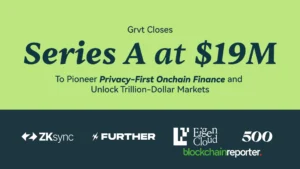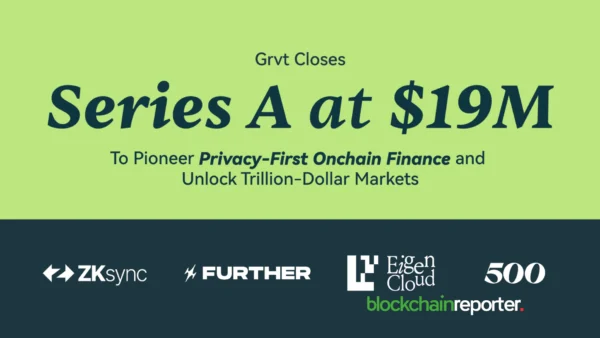
Real-world asset (RWA) tokenization has established a bridge between the world of traditional finance (TradFi) and decentralized finance (DeFi). Through the conversion of physical assets into digital tokenized representations, once intangible or immovable assets are now more accessible than ever before.
The conversion to digital tokens enables a range of benefits including huge accessibility to new opportunities for investors, improved liquidity flows, and the potential for fractionized ownership. RWAs have opened the door to a more connected world and the perfect intersection between blockchain technology and RWAs like real estate.
The need for a combination of TradFi and DeFi helped innovate the foundations, but companies like Portio Capital’s use of Blocksquare’s Oceanpoint v0.5 launchpad take this a step further — creating thriving coliving marketplaces.
RWA Tokenization Fundamentals
The tokenization of RWAs ensures the assets are blockchain-secured, offering a level of security, ease of movement, and transparency not previously possible. By improving access to these traditionally high-value, inaccessible assets, like real estate, investors once locked out of the market can now, finally, put a foot in the door.
By facilitating the fractionalized acquiring of a property — rather than having to purchase it outright — RWAs drastically reduce the need for capital. The option to buy fractions of a tokenized property makes the entire process more profitable through enhanced liquidity access, smoother transacting and blockchain-secured ownership.
Blocksquare, as a launchpad innovator in real estate tokenization technology, has progressed the RWA tokenization of properties to a whole new level. The firm recently announced its tokenzation of $100 million of real estate on its platform, across 21 countries. This tokenization process involved RWAs like hotels, restaurants, healthcare facilities, apartments, and parking lots.
Blocksquare: Breaking RWA Tokenization Limits
In September 2023, Blocksquare broke a first-of-its-kind milestone, executing the world’s first ever notarized tokenization of a real estate property and integrating it with the Solvenian land registry. This massive achievement made it possible for the protocol to access an approximately $16 trillion market, setting a new global standard for innovation and security for the industry of real estate tokenization.
Blocksquare’s Oceanpoint v0.5 ecosystem allows users to stake the protocol’s native utility token (BST), or convert it into the governance token sBST to get deeper involved in the platforms future. As an established and reputable protocol, this dual-utility of Blocksquare’s BST adds a new layer that creates increased access to real estate financing for users globally.
Portio Capital: The Coliving Vision
Portio Capital is a future-thinking European company that leverages Blocksquare and successfully applied the power of RWA tokenization to the real estate industry. As innovators and trailblazers in their field, their vision is to completely overhaul the process of investing by honing in on the coliving sector.
Coliving is characterized by the sharing of living space and tends to be geared towards individuals that prefer, or are comfortable with, community-oriented lifestyles. This method of communal shared living is becoming increasingly popular throughout urban areas as the result of its social benefits and reasonable costs.
The rise of coliving and the potential for RWA tokenization in this sector was clear for Portio Capital and, recognizing the challenge, they turned theory into practice by facilitating tokenized coliving properties. With rising housing costs, inflation and mortgages, this opportunity couldn’t come at a better time.
Tokenized Coliving
By creating the potential for fractionalized ownership, Portio Capital are making investments far more accessible to everyone through tokenized representations of shared ownership in coliving properties. This ownership enables investors to retain rights to property appreciation and rental income, opening up opportunities never previously available through blockchain technology.
Through the Blocksquare’s protocol, application programming interface (API), and whitelabel solutions, Portio Capital was able to harmoniously build a safe and user-friendly marketplace platform. This platform enables token transactions, property listings, and safe wallet integration for token holdings all in one place.
Funding Challenges
Despite the huge potential of the coliving tokenized marketplace, funding for operational and development costs immediately became a challenge — barring the way to innovation. To solve this and overcome this funding hurdle, Portio Capital turned to Blocksquare’s innovative DeFi platform, Oceanpoint v0.5.
Through Oceanpoint v0.5, Portio Capital were able to launch a marketplace pool campaign, inviting community members to pledge sBST governance tokens. This process involved pitching the idea to the Blocksquare governance board and the Oceanpoint community, setting clear key performance indicators (KPIs), and initiating a pool with a target of 100,000 sBST tokens.
By taking this approach, Portio Capital was not just able to secure the funding, but also engage and involve the community to ensure the interest aligns with the marketplace’s success. Within weeks, the marketplace was launched, listed high-quality coliving properties and, with community support, hit the ground running to huge success.
From swaves of attention pouring in from investors and perceptive industry experts, the market’s unique proposition of fractionalized coliving property ownership came out swinging. By establishing alignment with the audience and community to overcome funding challenges, Portio Capital incidently also paved the road to the marketplace’s success — block by block.
Build Hard or Go Home
After the launch, Portio Capital focused on ecosystem expansion, partnering with property owners to tokenize shares and list them on the platform. As the marketplace continued to succeed and grow, so too did the number of listings and investors.
Portio Capital also appealed to the more eco-conscious investor, focusing on the social and environmental benefits of coliving and the associated 68% reduced greenhouse gas emissions. This approach demonstrated the sustainability of coliving and helped support the widespread societal target of reducing urban housing crises.
Portio Capital’s success can be attributed in part to the proposition but the source of its community engagement and funding came from Blocksquare’s Oceanpoint v0.5 unparalleled infrastructure. Through this fundamental technological and financial infrastructure, projects like Portio Capital are able to receive pooled resources and support to break through initial and future hurdles to progress.
Ultimately, the involvement of the community in a project enables the establishment of strong foundations set to tackle limitations that often end projects before they even hit the market. Blocksquare’s launchpad initiative offers a 100% discount on its software-as-a-service (SaaS) solutions to ensure every project has the opportunity to launch and thrive with ease.
As Portio Capital prepares for their marketplace pool launch on June 28, they invite community members to join initiatives like the Bricc Factory points campaign and join Blocksquare’s governance voting forum. Portio Capital’s success story evidences the power of the community and shows exactly what is possible when blockchain meets real estate.









